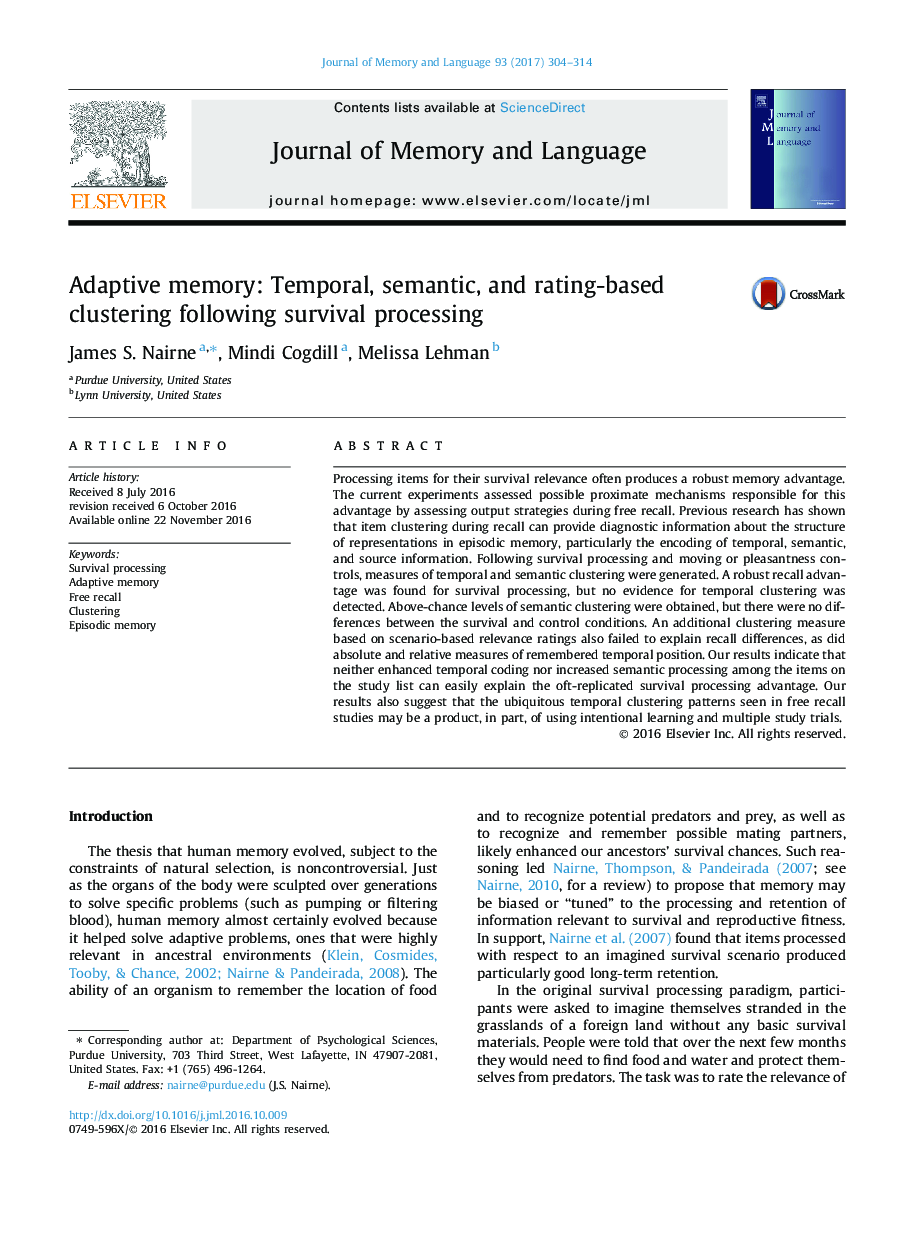| کد مقاله | کد نشریه | سال انتشار | مقاله انگلیسی | نسخه تمام متن |
|---|---|---|---|---|
| 5042551 | 1474626 | 2017 | 11 صفحه PDF | دانلود رایگان |
• Survival processing leads to excellent long-term retention.
• Survival processing may be associated with enhanced temporal or semantic clustering.
• No differences in clustering patterns were found between survival and controls.
• No evidence for temporal clustering was found in single-trial incidental learning.
• Enhanced temporal coding cannot explain the survival processing advantage.
Processing items for their survival relevance often produces a robust memory advantage. The current experiments assessed possible proximate mechanisms responsible for this advantage by assessing output strategies during free recall. Previous research has shown that item clustering during recall can provide diagnostic information about the structure of representations in episodic memory, particularly the encoding of temporal, semantic, and source information. Following survival processing and moving or pleasantness controls, measures of temporal and semantic clustering were generated. A robust recall advantage was found for survival processing, but no evidence for temporal clustering was detected. Above-chance levels of semantic clustering were obtained, but there were no differences between the survival and control conditions. An additional clustering measure based on scenario-based relevance ratings also failed to explain recall differences, as did absolute and relative measures of remembered temporal position. Our results indicate that neither enhanced temporal coding nor increased semantic processing among the items on the study list can easily explain the oft-replicated survival processing advantage. Our results also suggest that the ubiquitous temporal clustering patterns seen in free recall studies may be a product, in part, of using intentional learning and multiple study trials.
Journal: Journal of Memory and Language - Volume 93, April 2017, Pages 304–314
